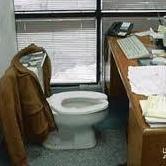Leaderboard
Popular Content
Showing content with the highest reputation on 11/02/2018 in all areas
-
I've signed a sales agreement for my practice. I have high respect for the guy who's buying my business and I'm thrilled that what I started 27 years ago will continue to grow and prosper, and that my employees will have a great new boss and continued employment. (is everyone singing that Who song in their heads right now?) This coming tax season should be my last full-time one where I work 70 hours and 7 days a week. I still need/want to work part-time for several years to come, perhaps at the wine bar in the town where I live. They've been struggling to find reliable employees who won't steal from them or screw up their inventory. Excited for the next chapter of my life and for being less stressed. I can't believe it all worked out exactly as I always hoped. I'm not much of a planner but I've always been lucky as can be. Don't worry. I'm not leaving this forum. You all (y'all) are like family to me!13 points
-
I *hate* that! If I can hear the muzak, I know you have NOT hung up on me. Shut your trap; leave the muzak playing. If I'm half-listening and I hear a voice I think my call is being answered when it's NOT. Don't. Just don't. Let the first voice be the person answering. And make them give their name and number at normal voice speed, rather than lightning-fast! Rant over.8 points
-
...But I wanted to mention that I had removed the Donate tab at the top of the site for a few days while I worked on a new system for collecting donations with an option to support recurring donations (suggested by @Catherine and @JohnH) The primary goal, though, is to finally be able to associate every donation with the person who made it. Before I usually had a good guess based on name or email address, but since the whole PayPal process happened outside of the website, there was no definitive way to make the connection between donation and donor, especially if a check was mailed. So now, no matter what method of payment is used, as long as you go through the checkout process, the site will create a record of that donation and associate it with your account. This also allows me the flexibility to add some minor benefits to the accounts of those who donate, like increased file attachment quotas, inbox size, etc, which is more of a gesture of gratitude than something of any actual value. If the ability to pay with PayPal is requested, I will look into implementing it as an additional payment option. Recurring donations can be cancelled at any time from the Donate > Manage Donations page. Card info can be updated/removed from the Donate > My Details > Cards page. Please let me know if you find anything confusing about the process or the way things are set up. Fine print: This is all PCI compliant. No credit card information is stored on my server. All transactions are processed by the Stripe payment gateway, and transmitted over an encrypted connection. I have implemented similar systems for hospitals around Maine--this is all up to industry standards.7 points
-
Just donated blood and my BP was 122/74, the lowest it's been in over a decade. Coincidence? I think not!7 points
-
I was listening to the Nutcracker Suite (Dance of the Sugar Plum Fairies?) on hold with the IRS. The phone clicked and then went back to the music, so I was afraid someone had picked up and then left, leaving me at the end of the line again or even in IRS limbo. So, I picked up my house phone (home office with my own office line, but house phone is at the back of my desk for convenience) and dialed in on the second phone. Now, with a phone in each hand on speaker playing loudly and not together, I danced (I can't dance) through the house to get another cup of tea. I forgot I'd left the storm door open for a client due a bit later, and danced through the entryway to the surprise of the UPS man on the other side of the glass door and my mortification!7 points
-
And don't get pissy with me what I ask you to repeat your name, IRS Number and then for your service center... Rich7 points
-
Congratulations! I hope the transition is an easy one and that you enjoy the next phase of your career. It's amazing when things fall in place exactly when they should or are needed.6 points
-
Lordy, I do not miss that. I like those songs and IRS ruined them for me. I always thought it was someone with a sense of humor that selected 'nutcracker' songs for the IRS. They need some meditation songs like they play during a massage to soothe the caller so they're less irate for being on hold for so long. I just put it on speaker phone and go about working with background music. Once I took the handheld into the restroom with me.6 points
-
Somebody pm'd me that Jack from Ohio had joined this conversation. If he did, please give him my regards.6 points
-
5 points
-
At the Chicago Nationwide Tax Forum I complained that the message on the Practitioner Priority Line had been reciting "new" changes since January 16, 2014. The message has changed at last! I'm so relieved right now that I'm not minding the quarter hour I've been waiting to reach someone. P.S. Aren't headsets great for allowing multi-tasking while on hold?! (Or is that "time-frittering while on hold"?)4 points
-
Congratulations Abby! I think you're too young to retire, so working in a wine bar which is a dream job of mine, you will still be serving up advice, but these clients may listen. Getting tax advice from a bartender will have a whole new meaning, how lucky are those customers.4 points
-
4 points
-
4 points
-
I liked the music too but every time I was getting in to the music they would interrupt to tell me my call was important and that if I hung up and called back it would increase my wait time. I knew that.4 points
-
I certainly would not like it. I find your posts extremely valuable.4 points
-
If I knew someone had you blocked, I'd enter a new post quoting you word-for-word and then add at the end "(at least that's what Judy said on this subject)". Just for fun...4 points
-
Ah, but NOW you can say, "I've made a fool of myself in a better place than this, and lived to tell the tale!" My mortification tale is from college. I had stayed up late working on a problem set. Had an 8AM, small, class - with a teacher whose voice was a good match for Charlton Heston; a deep monotone. Sat in the front row (the only one) figuring shame, if nothing else, would keep me awake. Fought and fought and fought to stay awake, and just as I went under, I heard the monotone state, "I see we've lost the front row..." and I had just enough time to think "oh, poopy!" (not that word) before I was out for good. Great story now; utter humiliation at the time.3 points
-
3 points
-
3 points
-
All on the computer, backed up to an offsite server. Organized by client last name with subfolders for years and a permanent folder I chose to call Misc. Some subfolders under each year for payroll or whatever is needed to keep things organized. Welcome to the 21st century! We started this in a very rudimentary way around 2003 and it's evolved continually since then and now all of our internal forms (billing sheets, jog sheets, time sheets, etc.) that we used to fill out by hand and scan are now spreadsheet files that we print to PDF when completed in a 'to be processed' folder, so the office manager can prepare the invoices and attach the pdf in QuickBooks. Then move the PDF out of to be processed to our business records folder. We keep no paper records, except signed original legal documents, POAs and efile signature forms.3 points
-
Shhhhhh......... the IRS might be trolling this board. They obviously made a mistake. Tom Modesto, CA3 points
-
I miss the muzak they used to play, it was something from the Nutcracker Suite.3 points
-
I'm guilty of contributing things that, well, don't really contribute much. But, I do think this board is friendlier than most, and it's my favorite because of that. There's not a soul on here I'd ignore. No kidding.3 points
-
I know of the feature - but quite frankly, there are people on the board and off the board (and formerly on the board) with whom I did NOT get along, but from whom I learned a LOT. There's a woman in our local group. I detest her (and won't bother to go in to the reasons, just assume the list is LONG) and actively try to avoid sitting anywhere near her if we're at the same meeting. But boy, oh boy, have I learned a lot from her over the years. Her ability to cite tax court cases to support positions, off the top of her head, is remarkable. (It's a real shame she's such a disgusting piece of humanity... but I digress.) I don't believe, that if you asked her, she has ANY idea of my low opinion of her. She *might* think I'm not very friendly. Think real hard about responding to someone who rubs you wrong, or blocking them. Make sure it's really worth it. It's also completely possible to get three words into a post and say to yourself, "Nope; not this one, ain't reading it" and move on.3 points
-
I do pretty much what Abby and Margaret do. Scan everything. Drake (which I have used since the 2012 filing season debacle) will print every tax form to their "DDM" (Drake Document Manager) choosing the right folder automatically. All backed up to the cloud (we use iDrive; my partners use BackBlaze). The only paper kept are client original docs (until returned), POA's, 8879-series, disclosure authorizations (for clients who want us to send returns to their financial advisors, for example), engagement letters. The occasional reference copy of something or other that we never bothered to scan. 8879-series are kept in ONE folder, all together, by year. One for feds, one for state(s). That way if the IRS ever walks in and wants to see them all, we would hand 'em one folder to paw through rather than have to get someone to go through every client folder fetching them out. After three years, those get scanned in one swell foop then shredded.2 points
-
I do exactly as Abby Normal except I no longer have employees. I began doing this 5-6 years ago and am down to 2 file drawers where I keep those POA's, etc. and an empty file folder for each client to be used if they provide working paper copies until I scan and return them. My back up is BackBlaze. I love this whole set up and it will be so much easier to close up shop as Abby Normal is doing.2 points
-
It really depends on when, or if, the return for that year was filed and/or when the tax was paid, and that is covered in sec 6511 (a) through (c). Is your client a nonfiler or a very late filer? If so, again, your answer may be in sec 6511 Other reasons refunds may be issused from closed years is when a carryback of loss or credit to an open year frees up credits that are then allowed to be carried back into those years generally closed. I suspect that your client's case is that of the former, not any sort of carryback situation. That sec 6511, starting at para (d) covers the other situations, losses, credits and the various time frames allowed for filing and claiming refunds.2 points
-
2 points
-
I tried blocking in the past and found it annoying and was still tempted to unhide and look at the posts anyway. I know some people have me blocked, but I still try to help them and like everyone anyway. It's amusing to see how long that blocking person will wait to respond when mine is sometimes the only answer. It's also very obvious when I post an exact correct answer and a member who has me blocked will follow up in the very next post with the same thing, and I'm not talking about when people are typing and posting at the same time either. More people would probably like it better if I posted less and stayed in the background to moderate. Less of that too, I'm sure.2 points
-
I didn't want anyone to miss out on all this fun if they skipped over the other topic.2 points
-
Hey, I see what you did there, Judy.2 points
-
Maybe we need a "Bless his/her heart" emoji for those times when [just doesn't cut it.2 points
-
I admit I do some skimming and eye rolling. Bless their hearts. LOL.2 points
-
That is a handy feature. I don't use it with anyone on this forum since I'm fairly thick-skinned anyhow. But several years ago I found myself in constant conflict with someone on another forum. Not sure what it was, but something about our personalities just clashed - they didn't care for me and I didn't care for them. It happens. So I blocked them and that was the end of it. I think it was good for both of us, since neither of us needed to waste our time tossing insults at one another. I decided it's better to save that stuff for Facebook, where you can really be confident that you'll change some minds.2 points
-
First 7 posts below were moved from "State Tax Aggression that were1 point
-
1 point
-
Reminder that this topic is State Tax Aggression. The off-topic posts have been moved to this one.1 point
-
I agree with Rita mostly. There are people on here whose posts I sometimes ignore (or gloss over really quickly). But there is no one on here who has annoyed me to the point that I have blocked them (yet.) And it is the personality of the people on this board that keep me coming back - especially during the off season. Kind of nice to know the block feature is there if I really need it. Now if only there were a feature to bring back some of the posters who left that I really enjoyed. Of course, some of them may have moved where there is no internet.1 point
-
Moderator note - first 5 posts here were moved from another topic that was being derailed. Rita, LaVergne is simply Edsel on a client's computer. In order to post, you have to register, and the IP address of the computer in use will not allow a duplication of another name. Apologize if you were misled, there was no attempt to "hide" my identity. I think you know I would not hide behind a tree to post, even for unpopular subjects. The client's computer is in LaVergne, Tennessee. My engagement at this client will last until January when a full-time person will take over. Thus posts from "LaVergne" will be few and not last very long.1 point
-
Trouble making the link right! (Please don't put me on oldpeoplefacebook!) https://old.reddit.com/r/tax/1 point
-
No things are not separated due to related property rules. Things are separated simply to handle depreciation and deprecation recapture. I think you have hit on my original point. Consider 2 scenarios entered into ATX software: In both scenarios the facts are the same: a Related party sale total net gain =$10,000. (Made up of: • Gain on building = $20,000 • loss on land =$10,000) ==> Scenario 1 Sale of vacation home - Gain recognized on the related party sale is $10,000. ==> Scenario 2 Sale of rental home - Gain recognized on related party sale is $20,000. I understand the no netting rule. This result seems inconsistent. That was why I asked the question.1 point
-
Excellent post and summary chart by cbslee that I copied from another topic to save here:1 point
-
Released by the IRS: "The Tax Cuts and Jobs Act ("TCJA") changed deductions, depreciation, expensing, tax credits and other tax items that affect businesses. This side-by-side comparison can help businesses understand the changes and plan accordingly. Some provisions of the TCJA that affect individual taxpayers can also affect business taxes. Businesses and self-employed individuals should review tax reform changes for individuals and determine how these provisions work with their business situation. Visit IRS.gov/taxreform regularly for tax reform updates. Businesses can find details and the latest resources on the provisions below at Tax Reform Provisions that Affect Businesses. Deductions, depreciation and expensing Changes to deductions, depreciation and expensing may affect a taxpayer’s business taxes. Publication 535, Business Expenses, and Publication 946, How to Depreciate Property, explain many of these topics in detail. Deductions Deductions 2017 Law What changed under TCJA New deduction for qualified business income of pass-through entities No previous law for comparison. This is a new provision. This new provision, also known as Section 199A, allows a deduction of up to 20% of qualified business income for owners of some businesses. Limits apply based on income and type of business." Limits on deduction for meals and entertainment expenses A business can deduct up to 50% of entertainment expenses directly related to the active conduct of a trade or business or incurred immediately before or after a substantial and bona fide business discussion. The TCJA generally eliminated the deduction for any expenses related to activities considered entertainment, amusement or recreation. However, under the new law, taxpayers can continue to deduct 50% of the cost of business meals if the taxpayer (or an employee of the taxpayer) is present and the food or beverages are not considered lavish or extravagant. The meals may be provided to a current or potential business customer, client, consultant or similar business contact. If provided during or at an entertainment activity, the food and beverages must be purchased separately from the entertainment, or the cost of the food or beverages must be stated separately from the cost of the entertainment on one or more bills, invoices, or receipts. Notice 2018-76 provides additional information on these changes. New limits on deduction for business interest expenses The deduction for net interest is limited to 50% of adjusted taxable income for firms with a debt-equity ratio above 1.5. Interest above the limit can be carried forward indefinitely. The change limits deductions for business interest incurred by certain businesses. Generally, for businesses with 25 million or less in average annual gross receipts, business interest expense is limited to business interest income plus 30% of the business’s adjusted taxable income and floor-plan financing interest There are some exceptions to the limit, and some businesses can elect out of this limit. Disallowed interest above the limit may be carried forward indefinitely, with special rules for partnerships. Changes to rules for like-kind exchanges Like-kind exchange treatment applies to certain exchanges of real, personal or intangible property. Like-kind exchange treatment now applies only to certain exchanges of real property. For more information, see Form 8824, Like-Kind Exchanges, and its instructions, as well as Publication 544, Sales and Other Disposition of Assets. Payments made in sexual harassment or sexual abuse cases No previous law for comparison. This is a new provision. No deduction is allowed for certain payments made in sexual harassment or sexual abuse cases. Changes to deductions for local lobbying expenses Although lobbying and political expenditures are generally not deductible, a taxpayer can deduct payments related to lobbying local councils or similar governing bodies. TCJA repealed the exception for local lobbying expenses. The general disallowance rules for lobbying and political expenses now apply to payments related to local legislation as well. Depreciation Depreciation 2017 Law What changed under TCJA Temporary 100 percent expensing for certain business assets Certain business assets, such as equipment and buildings, are depreciated over time. Bonus depreciation for equipment, computer software, and certain improvements to nonresidential real property allows an immediate deduction of 50% for equipment placed in service in 2017, 40% in 2018, and 30% in 2019. Long-lived property generally is not eligible. The phase down is delayed for certain property, including property with a long production period. TCJA temporarily allows 100% expensing for business property acquired and placed in service after Sept. 27, 2017 and before Jan. 1, 2023. The 100% allowance generally decreases by 20% per year in taxable years beginning after 2022 and expires Jan. 1, 2027. The law now allows expensing for certain film, television, and live theatrical productions, and used qualified property with certain restrictions. For more information, see Tax Reform: Changes to Depreciation Affect Businesses Now and New 100-percent depreciation deduction for businesses. Changes to rules for expensing depreciable business assets (section 179 property) A taxpayer can expense the cost of qualified assets and deduct a maximum of $500,000, with a phaseout threshold of $2 million. Generally, qualified assets consist of machinery, equipment, off-the-shelf computer software and certain improvements to nonresidential real property. TCJA increased the maximum deduction to $1 million and increased the phase-out threshold to $2.5 million. It also modifies the definition of section 179 property to allow the taxpayer to elect to include certain improvements made to nonresidential real property. Publication 946, How to Depreciate Property, and the Additional First Year Depreciation Deduction (Bonus) FAQs provide additional resources on this topic. Changes to depreciation of luxury automobiles There are limits on depreciation deductions for owners of cars, trucks and vans. TCJA increased depreciation limits for passenger vehicles. If the taxpayer doesn’t claim bonus depreciation, the greatest allowable depreciation deduction is: $10,000 for the first year, $16,000 for the second year, $9,600 for the third year, and $5,760 for each later taxable year in the recovery period. If a taxpayer claims 100% bonus depreciation, the greatest allowable depreciation deduction is $18,000 for the first year, and the same as above for later years. Changes to listed property Computers and peripheral equipment are categorized as listed property. Their deduction and depreciation is subject to strict substantiation requirements. TCJA removes computer or peripheral equipment from the definition of listed property. Changes to the applicable recovery period for real property The General Depreciation System (GDS) and the Alternative Depreciation System (ADS) of the Modified Accelerated Cost Recovery System (MACRS) provide that the capitalized cost of tangible property is recovered over a specified life by annual deductions for depreciation. The general depreciation system recovery periods are still 39 years for nonresidential real property and 27.5 years for residential rental property. The alternative depreciation system recovery period for nonresidential real property is still 40 years. However, TCJA changes the alternative depreciation system recovery period for residential rental property from 40 years to 30 years. Qualified leasehold improvement property, qualified restaurant property and qualified retail improvement property are no longer separately defined and given a special 15-year recovery period under the new law. Businesses with employees: Changes to fringe benefits and new credit For businesses that have employees, there are changes to fringe benefits and a new tax credit that can affect a business’s bottom line. Fringe benefit 2017 law What changed under TCJA Suspension of the exclusion for qualified bicycle commuting reimbursements Up to $20 per month in employer reimbursement for bicycle commuting expense is not subject to income and employment taxes of the employee. Under TCJA, employers can deduct qualified bicycle commuting reimbursements as a business expense. Employers must now include 100% of these reimbursements in the employee’s wages, subject to income and employment taxes. Suspension of exclusion for qualified moving expense reimbursements An employee’s moving expense reimbursements are not subject to income or employment taxes. Under TCJA, employers must include moving expense reimbursements in employees’ wages, subject to income and employment taxes. Generally, members of the U.S. Armed Forces can still exclude qualified moving expense reimbursements from their income. Prohibition on cash, gift cards and other non-tangible personal property as employee achievement award Employers can deduct the cost of certain employee achievement awards. Deductible awards are excludible from employee income. Special rules allow an employee to exclude certain achievement awards from their wages if the awards are tangible personal property. An employer also may deduct awards that are tangible personal property, subject to certain deduction limits. TCJA clarifies that tangible personal property doesn’t include cash, cash equivalents, gift cards, gift coupons, certain gift certificates, tickets to theater or sporting events, vacations, meals, lodging, stocks, bonds, securities, and other similar items. Tax Credit 2017 law What changed under TCJA New employer credit for paid family and medical leave No previous law for comparison. This is a new provision. The TCJA added a new tax credit for employers that offer paid family and medical leave to their employees. The credit applies to wages paid in taxable years beginning after December 31, 2017, and before January 1, 2020. The credit is a percentage of wages (as determined for Federal Unemployment Tax Act (FUTA) purposes and without regard to the $7,000 FUTA wage limitation) paid to a qualifying employee while on family and medical leave for up to 12 weeks per taxable year. The percentage can range from 12.5% to 25%, depending on the percentage of wages paid during the leave. For more information on the new credit, see Notice 2018-71 and New credit benefits employers who provide paid family and medical leave. Business structure and accounting methods An organization’s business structure is an important consideration when applying tax reform changes. The Tax Cuts and Jobs Act changed some things related to these topics. Business structure topic 2017 law What changed under TCJA Changes to cash method of accounting for some businesses Small business taxpayers with average annual gross receipts of $5 million or less in the prior three-year period may use the cash method of accounting. The TCJA allows small business taxpayers with average annual gross receipts of $25 million or less in the prior three-year period to use the cash method of accounting. The law expands the number of small business taxpayers eligible to use the cash method of accounting and exempts these small businesses from certain accounting rules for inventories, cost capitalization and long-term contracts. As a result, more small business taxpayers can change to cash method accounting starting after Dec. 31, 2017. Revenue Procedure 2018-40 provides further details on these changes. Changes regarding conversions from an S corporation to a C corporation In the case of an S corporation that converts to a C corporation: Net adjustments that are needed to prevent amounts from being duplicated or omitted as a result of an accounting method change and attributable to the revocation of the S corporation election (e.g. adjustments required because of a required change from the cash method to an accrual method): net adjustments that decrease taxable income generally were taken into account entirely in the year of change, and net adjustments that increase taxable income generally were taken into account ratably during the four-taxable-year period beginning with the year of change. Distributions of cash by the C corporation to its shareholders during a post-termination transition period (generally one year after the conversion) are, to the extent of stock basis tax-free, then capital gain to the extent of remaining accumulated adjustments account (AAA). Distributions more than AAA are treated as dividends coming from accumulated Earnings and Profits (E&P). Distributions after that period are dividends to the extent of E&P and taxed as dividends. The TCJA makes two modifications to existing law for a C corporation that (1) was an S corporation on Dec. 21, 2017 and revokes its S corporation election after Dec. 21, 2017, but before Dec. 22, 2019, and (2) has the same owners of stock in identical proportions on the date of revocation and on Dec. 22, 2017. The following modifications apply to these entities: The period for including net adjustments that are needed to prevent amounts from being duplicated or omitted as a result of an accounting method change and attributable to the revocation of the S corporation election is changed to six years. This six-year period applies to net adjustments that decrease taxable income as well as net adjustments that increase taxable income. Distributions of cash following the post-termination transition period are treated as coming out of the corporation’s AAA and E&P proportionally. See Revenue Procedure 2018-44 for more detailed information. Businesses or individuals that rehabilitate historical buildings Topic 2017 law What changed under TCJA Changes to the rehabilitation tax credit Owners of certified historic structures were eligible for a tax credit of 20% of qualified rehabilitation expenditures. Owners of pre-1936 buildings were eligible for a tax credit of 10% of qualified rehabilitation expenditures. TCJA keeps the 20% credit for qualified rehabilitation expenditures for certified historic structures but requires that taxpayers take the 20% credit over five years instead of in the year they placed the building into service. The 10% credit for pre-1936 buildings is repealed under TCJA. Opportunity for tax-favored investments Opportunity Zones are a tool designed to spur economic development and job creation in distressed communities. Businesses or individuals can participate. Topic 2017 law What changed under TCJA Opportunity Zones No previous law for comparison. This is a new provision. Investments in Opportunity Zones provide tax benefits to investors. Investors can elect to temporarily defer tax on capital gains that are reinvested in a Qualified Opportunity Fund (QOF). The tax on the gain can be deferred until the earlier of the date on which the QOF investment is sold or exchanged, or Dec. 31, 2026. If the investor holds the investment in the QOF for at least ten years, the investor may be eligible for a permanent exclusion of any capital gain realized by the sale or exchange of the QOF investment."1 point
-
Um, also not true. A username and password will allow access to wherever you want to log in to, but you need to make sure that you trust the computer and network it is on to have that information stored in its cookies. By the way, I strongly suspected this was you just by the way your post was worded before I ever checked the profile. There's more information that Eric and I can see than the general membership has access to. Buh bye LaVergne.1 point
-
First forum of this kind where I've found this to be true. A good idea, too - keeps from needless proliferation of names. Helpful post - hope others read it. "LaVergne" may die a premature death...1 point
-
No, all you have to do on any other computer or device is to log in using your existing username and password. There is absolutely NO NEED to set up any other username to access this forum.1 point
-
Evan, There is a setting on the board that allows you to ignore posts from people you don't like. I have used it on 2 people, one who is no longer active on the board and one who is. I don't even see that person's posts unless someone quotes them in a reply post. It has made my life immensely happier on this board. Some people, no matter what they post, just rub you the wrong way. I suggest you use that feature, even if it means you don't like me and never see my posts again. It is one of the best features Eric has put on this board. Tom Modesto, CA1 point
-
I have often found that Google will do a better search of federal OR state official sites than the embedded search engines. For example, if at MassDOR I specify that I'm looking for tax year 2014 form whatever, they first page (or three) of "hits" will be years OTHER than 2014. Not so with Google. Mostly.1 point

















